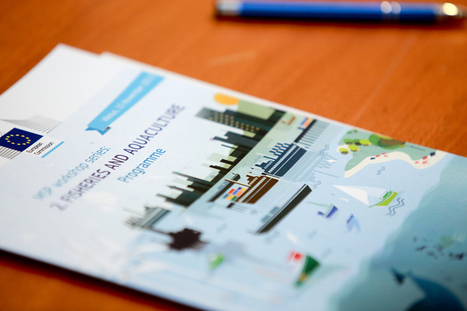On 15 November 2013, the Directorate-General for Maritime Affairs and Fisheries (DG MARE) organised a workshop on Maritime Spatial Planning (MSP) and fisheries and aquaculture in Vilnius, Lithuania.
This event was the second in a series of stakeholder workshops assessing the benefits and challenges of MSP for specific maritime activities. The workshops aim to draw conclusions on the specific needs and best practices on cross-sector cooperation. These conclusions will feed the work of the Commission to support the deployment of MSP in Europe.
The current popularity of MSP is linked to the growth of particular sectors – especially planning for offshore wind development is an important MSP driver. Other space-demanding maritime activities such as shipping, coastal tourism and the protection of marine areas are also growing significantly. While the growth potential of the EU's Blue Economy will help to create jobs in coastal communities, the workshop aimed at discussing a crucial question: where does that leave traditional maritime activities and especially fisheries?
The event was chaired by Andrew Lipsky, Director of Science and Policy at SeaPlan and former Ocean Policy Adviser at the White House. Mr Lipsky highlighted the importance of involving fisheries into the planning of other maritime activities. Industry to industry dialogue is essential to understand the possible trade-offs between sectors and consider synergies and mitigation. In terms of knowledge, much cooperative effort is needed to develop, execute and interpret studies jointly. Mr. Lipsky also stressed the importance of climate change, which makes proper planning key to the long-term development of fisheries.
The discussions between stakeholders mainly focused on the coexistence between economic activities in Europe's sea basins. The fisheries industry in the North Sea stressed its concern that fishing areas were reducing. Strong support was expressed for MSP as a tool to recognise fishermen user rights. As one representative put it: "if you are not at the table, you are on the menu!".
The cost of collecting and harmonising data to be used for cross-sectoral dialogue was recognised as a major hurdle to cooperation. Especially, little data exists on effort displacement due to new activities – this is crucial in cross-border contexts.
Stakeholders also explored how MSP can facilitate synergies between sectors and the multi-use of marine space. In Lyme Bay, UK, fishermen and conservationists work through agreed code of practice on the protection of the reefs and the provision of high added-value sea food. In Germany, multi-usage of areas and structure will help develop the aquaculture sector in already crowded sea. Coherence of planning, timing and licensing between aquaculture and wind farms facilitate multi-usage considerably.
More information on the workshop, as well as the presentations, can be found on the website: http://www.amiando.com/MSPworkshops_Vilnius.html?page=1022769
The next workshop will take place in May 2014 in Greece and will be focused on shipping and ports. The following one will discuss tourism during the Italian Presidency. Please contact MARE-E1@ec.europa.eu if you wish to be kept informed.
 Your new post is loading...
Your new post is loading...
 Your new post is loading...
Your new post is loading...











GIS/MSP for DoD and coastal resources.